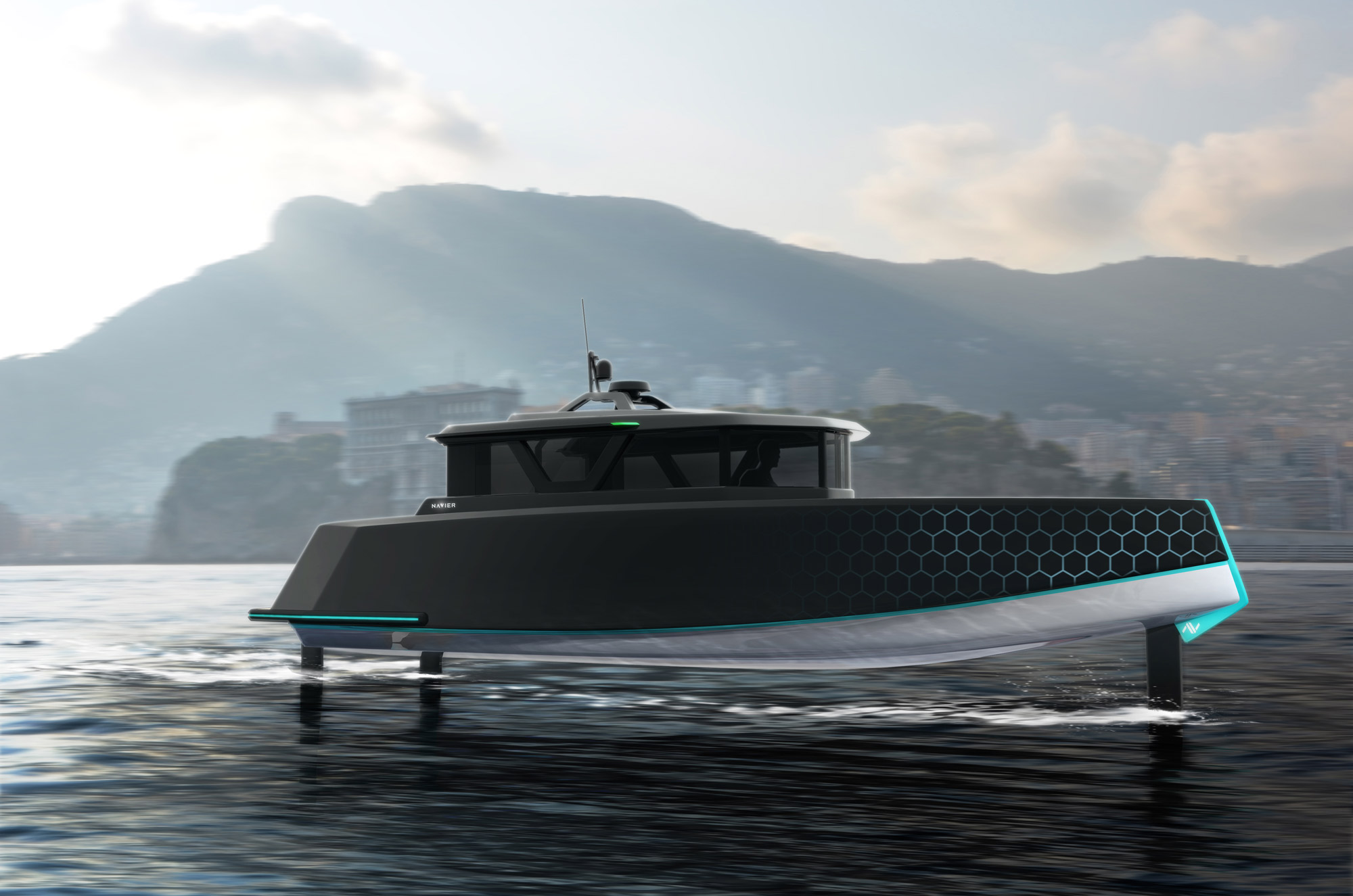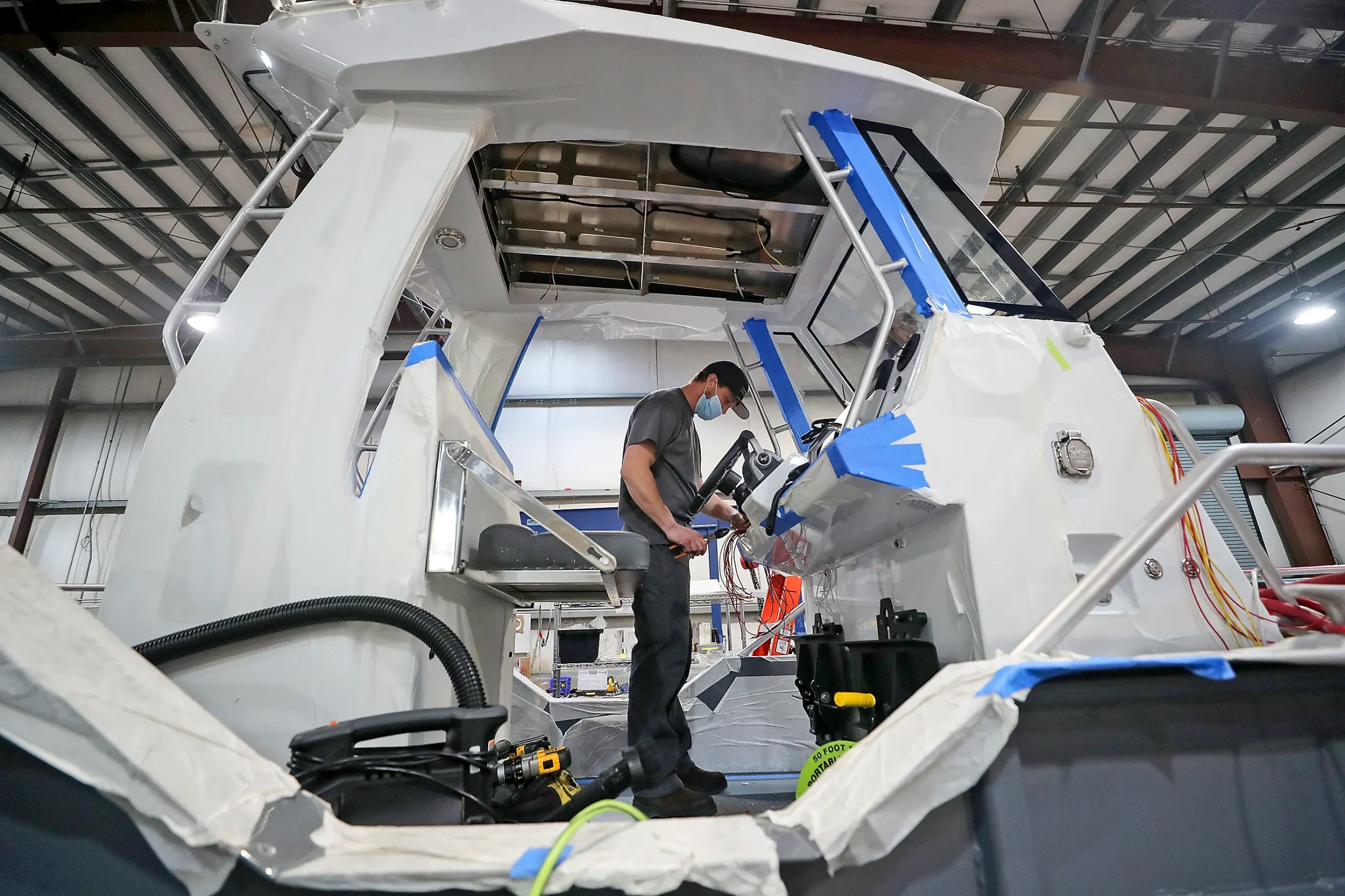How Does the Effect of Alcohol While Boating Compare to Its Effect While on Land: A Comprehensive Analysis
Boating under the influence of alcohol is a serious concern because its effects can be significantly more potent than those observed on land. The primary reason for this increased impact is the unique combination of environmental stressors that are present while boating, such as sun, wind, noise, and constant motion. These factors augment the typical physical and cognitive impairments caused by alcohol, posing a great risk to both the operator and passengers on a boat.
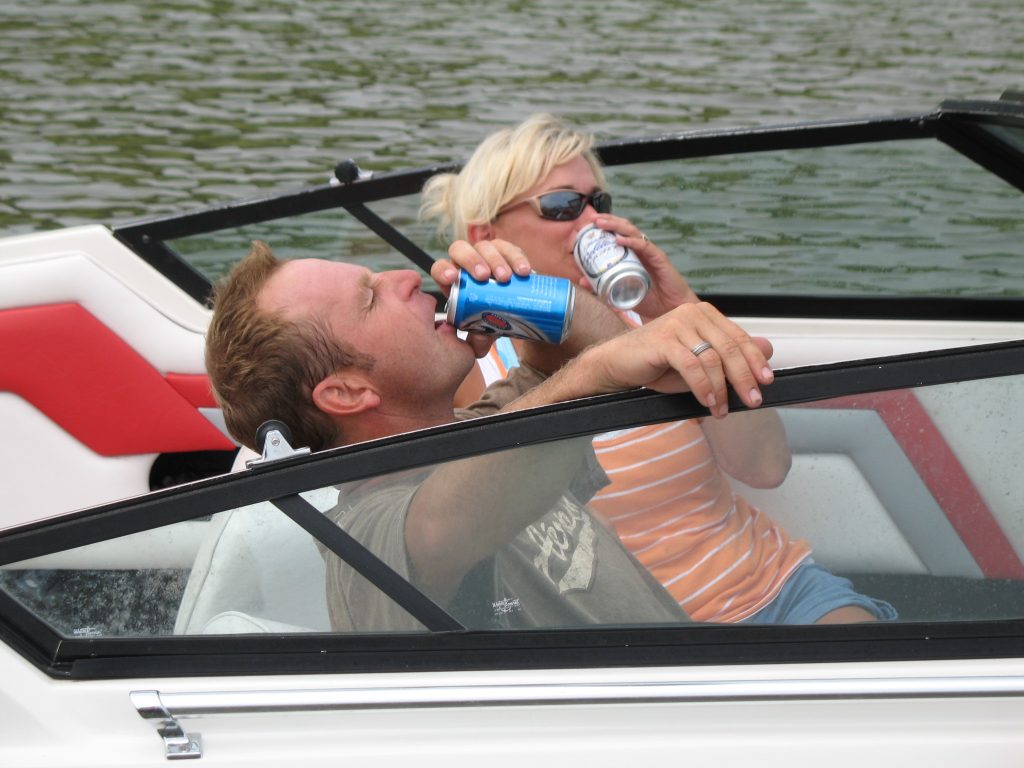
Moreover, alcohol exacerbates the challenges of maintaining balance and spatial awareness on water, which are essential skills for safe navigation. Coordination and judgment, which are already impaired by alcohol consumption, are further compromised by the continuously changing conditions experienced while boating. This situation highlights the importance of understanding the differences between the effects of alcohol on land and in the boating environment to ensure safety and responsible decision-making on the water.
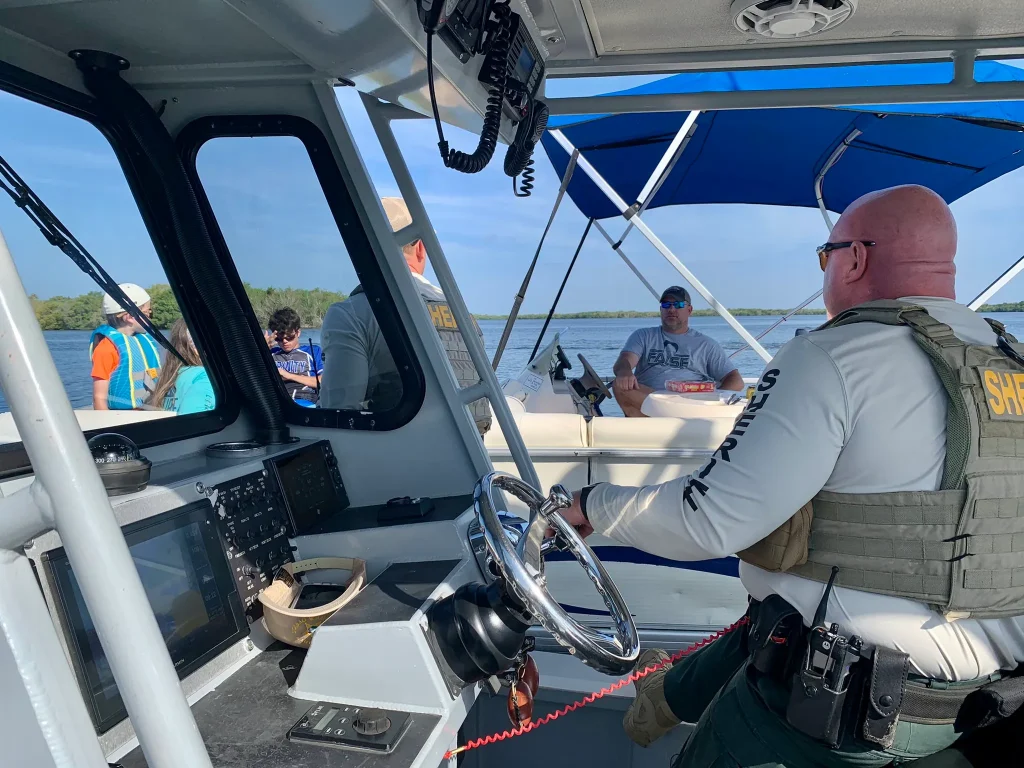
Key Takeaways
- Alcohol has a greater impact on boaters due to environmental stressors such as sun, wind, and motion.
- Impaired coordination and judgment caused by alcohol consumption are further exacerbated by the challenges of navigating on water.
- Recognizing the heightened dangers on water, as opposed to on land, can facilitate better decision-making and ensure boating safety.
Effects of Alcohol on the Human Body
Alcohol Absorption and Metabolism
When you consume alcohol, your body rapidly absorbs it into the bloodstream through the stomach and small intestines. It is then metabolized by the liver, which breaks down alcohol into acetic acid. The rate of absorption and metabolism can vary depending on factors such as age, weight, gender, and the presence of food in the stomach. Consequently, the effect of alcohol may vary from person to person.
Blood Alcohol Concentration
Blood Alcohol Concentration (BAC) is a measure of the amount of alcohol present in a person's bloodstream. It is expressed as a percentage, indicating the weight of alcohol per unit of blood volume. For example, a BAC of 0.08% means that there are 0.08 grams of alcohol per 100 milliliters of blood. As the BAC increases, the effects of alcohol on cognitive abilities and motor skills become more pronounced.
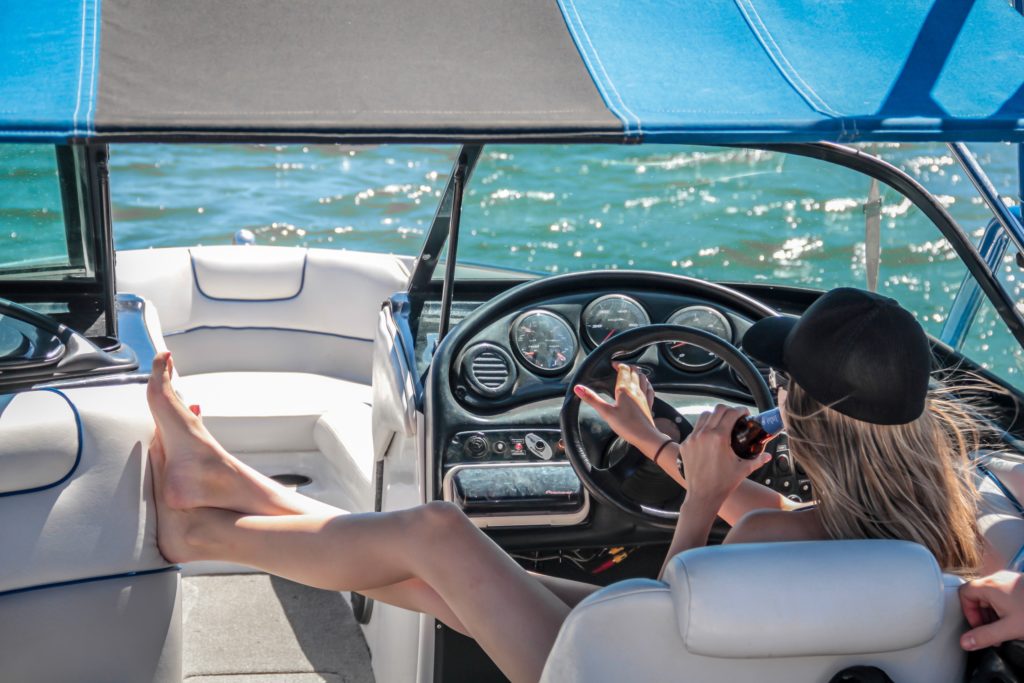
Impact on Cognitive Abilities and Motor Skills
The consumption of alcohol affects several aspects of human functioning, including cognitive abilities, judgment, vision, coordination, and reaction time. As the BAC rises, a person may experience impaired judgment, reduced vision, and decreased coordination and reaction time. This can lead to poor decision-making, slower reflexes, and increased risk of accidents.
Factors such as exposure to noise, vibration, sun, glare, wind, and the motion of the water can increase the level of fatigue and make drinking while boating even more dangerous than drinking and driving. Furthermore, research has proven that one-third of the amount of alcohol that it takes to be legally intoxicated on land can cause the same level of impairment on the water.
Boating Under the Influence (BUI)
Legal Definition and Consequences
Boating Under the Influence (BUI) refers to the act of operating a boat while under the influence of alcohol or drugs. In the United States, it is considered a federal offense and is also illegal in every state 1. The legal blood alcohol concentration (BAC) limit for boaters is 0.08% 2, which is the same as driving under the influence (DUI) on land. Penalties for BUI can include fines, jail time, and suspension or revocation of boating licenses 3.
| BUI | DUI | |
|---|---|---|
| Legal BAC Limit | 0.08% 4 | 0.08% |
| Fines | Up to $1000 (Federal) 5 | State dependent |
| Jail Time | Depending on state laws | State dependent |
| License Suspension | Boat license suspension/revocation | Driving license suspension |
Comparing BUI and DUI
Although the legal definitions and consequences for BUI and DUI are similar, the risk factors involved in boating under the influence differ from those of driving under the influence. Alcohol's effects are even more hazardous on the water than on land. In fact, alcohol is a contributing factor in about a third of all boating accidents 6. Elements unique to boating, such as constant motion and exposure to sun, heat, and wind, amplify the impairing effects of alcohol on a boater's judgment, vision, balance, and coordination.
Alcohol's Effect on Boating Skills
When under the influence of alcohol, a boater's essential skills are impaired. Here are some examples of how alcohol affects boating skills:
- Judgment: Alcohol impairs judgment, increasing the likelihood of making poor decisions.
- Vision: Intoxicated boaters may experience reduced night vision, difficulty in focusing, and impaired depth perception.
- Balance: Unsteady footing and lack of coordination, exacerbated by the boat's motion, can lead to falls and accidents.
- Coordination: Slower reflexes and impaired motor skills increase the risk of injury or collision.
Footnotes
- U.S. Coast Guard - BUI Initiatives ↩
- BoatUS Foundation - Required Equipment ↩
- Alcohol.org - BUI Laws ↩
- National Weather Service - Boating Under the Influence ↩
- LawInfo - BUI Legal Consequences ↩
- National Weather Service - Boating Under the Influence ↩
Environmental Stressors in Boating
Boating presents unique challenges for operators due to various environmental stressors that can significantly impact their ability to safely navigate a vessel. In this section, we will explore the specific stressors that make the effects of alcohol more dangerous on the water than on land.
Role of Motion and Vibration
Boating involves constant alteration of motion and vibration from the engine, waves, and movement of the vessel itself. This can lead to a phenomenon known as boater's hypnosis, which affects both operators and passengers. The fatigue induced by prolonged exposure to motion and vibration can slow down reaction times and impair the ability to make sound decisions.
- Motion: Waves and currents can cause the vessel to sway, making it harder to maintain balance.
- Vibration: Vibrations from the engine and propeller can further disorient the operator.
Wind and Noise Effects
In addition to motion and vibration, boaters are continuously exposed to wind and noise which can impair their cognitive abilities.
Wind can exacerbate dehydration, make it difficult to hear verbal communication, and increase fatigue. Meanwhile, noise from the boat engine, waves, and other vessels can limit an operator's ability to recognize auditory cues, like approaching vessels or important alerts from passengers.
Visual Challenges on the Water
Boaters often face restricted visibility due to glare, varying weather conditions, and potential obstructions in the water.
These visual challenges are heightened by the effects of alcohol, which can impair depth perception, attention, and the ability to distinguish colors.
- Glare: Sun reflecting off the water can create intense bright spots that impair visibility and obstruct the operator's view. Glare can also strain the eyes, leading to increased fatigue.
- Night Vision: Alcohol can affect an individual's night vision, making it more difficult for operators to navigate during low-light conditions.
- Restricted Visibility: Weather conditions, such as fog, rain, and haze, can limit visibility on the water, increasing the importance of clear perception and decision-making skills.
Physical Effects of Being on the Water
Impacts of Cold Water and Weather Conditions
Cold water can have significant effects on a person's body while boating. Exposure to cold water, especially when combined with windy or rainy weather conditions, can increase the risk of hypothermia and fatigue.
The body loses heat much faster in cold water than in cold air, making it harder to maintain a stable body temperature. When a person is in cold water, their blood vessels constrict to preserve heat, putting extra stress on the heart and increasing the risk of dehydration.
Boating in cold weather conditions can also lead to an increased sense of fatigue. Wind, rain, and waves increase physical strain and mental stress on boaters, causing them to tire more quickly.
Hypothermia and Boater's Hypnosis
Hypothermia is a dangerous condition where the body's core temperature drops below normal levels. This can happen when a boater is exposed to cold water or cold weather conditions for a prolonged period.
Symptoms of hypothermia include:
- Shivering
- Drowsiness and fatigue
- Confusion and disorientation
- Slurred speech
- In extreme cases, unconsciousness and death
To prevent hypothermia, boaters must wear proper clothing and protective gear, such as wetsuits or drysuits, when in cold water environments. They should also be aware of the weather conditions and take breaks when necessary to warm up and rest.
Boater's hypnosis is a term that describes the state of mental and physical fatigue experienced by boaters after hours of exposure to the various stressors in the environment, such as noise, sun, wind, and motion of the water.
These factors contribute to a sense of lethargy, impaired judgment, and decreased reaction times. To counteract boater's hypnosis, boaters should take breaks, stay hydrated, and limit alcohol intake.
Safety Measures and Preventive Actions
Safety Equipment and Life Jackets
It is crucial for boat operators and passengers to prioritize safety when on the water.
One of the most important aspects of boating safety is having proper safety equipment on board, including wearable personal flotation devices (PFDs) for all passengers.
Wearing a life jacket greatly reduces the risk of drowning, particularly if someone falls overboard or if the boat capsizes.
Besides life jackets, it is essential to have other safety gear on board, such as a fire extinguisher, flares, and a first-aid kit. This helps ensure that any potential emergencies can be effectively managed.
Understanding Capacity and Load Management
Operators should always pay attention to a boat's capacity plate, which indicates the maximum load weight and the number of people the boat can safely carry under certain conditions.
Overloading a boat with extra passengers or excessive weight can result in instability, making the vessel more prone to capsizing or sinking.
Properly managing a boat's load is particularly relevant when considering the effects of alcohol on coordination and balance, as operators may be less capable of handling an overloaded boat.
In addition to passenger weight, keeping a boat's fuel tank and storage within the designated weight limits is essential for maintaining proper load management. Operators should regularly review the capacity plate and ensure that the boat is adequately prepared for the given circumstances.
Navigation and Communication Protocols
Operating a boat safely requires proper knowledge of navigation and communication protocols.
Navigation lights, for example, must be displayed according to the boat safety guidelines, ensuring that other vessels can see and avoid collisions during low-light conditions.
Additionally, operators should be familiar with the correct use of radios, flares, and other communication devices, as these can effectively signal for help if an emergency arises.
Boat operators must also be adept at reading charts and understanding key navigational markers, ensuring that they can maintain safe waterways and avoid potential hazards such as submerged rocks or shallow water.
Legal Ramifications and Enforcement
Boating under the influence (BUI) is a serious offense that carries significant legal consequences. These consequences can include penalties, license suspension, revocation, and dangerous outcomes, such as accidents, injuries, and even fatalities. In this section, we will explore the legal ramifications and enforcement of BUI, focusing on the penalties and fines for BUI, license suspension and revocation, and boating and alcohol laws. https://www.youtube.com/embed/-XDmZQt_2Fo
Penalties and Fines for BUI
The penalties and fines for BUI vary depending on the jurisdiction, but they can be quite severe. Common consequences include:
- Monetary fines: BUI offenders may be required to pay hefty fines, which can range from hundreds to thousands of dollars.
- Jail time: In some cases, BUI convictions can result in jail time, particularly for repeat offenders or those who cause severe accidents or injuries.
- Court-ordered substance abuse treatment: Offenders may be required to participate in alcohol education or treatment programs.
- Community service: BUI offenders may be required to complete a certain number of community service hours.
The consequences of BUI can become more severe with each subsequent offense, leading to higher fines and longer jail sentences.
License Suspension and Revocation
BUI convictions can lead to the suspension or revocation of boating privileges.
Offenders may face temporary suspension, during which they are prohibited from operating a boat for a specified period. In more severe cases, boating licenses may be permanently revoked, rendering the individual ineligible to operate a boat in the future.
The duration of the suspension or revocation often depends on the severity of the BUI offense and the individual's prior record. Moreover, some jurisdictions also impose penalties on non-boating licenses, such as driver's licenses, following a BUI conviction.
Boating and Alcohol Laws
In many jurisdictions, boating and alcohol laws are enforced to deter dangerous behavior on the water.
These laws typically outline the legal limits for alcohol consumption, such as the legally intoxicated or legally drunk threshold.
Enforcement efforts may include random sobriety checkpoints, routine patrols, and targeted operations in areas known for high BUI rates.
The BoatUS Foundation also emphasizes the dangers of alcohol while boating and the amplified effects of alcohol when combined with boating stressors. Boating stressors, such as exposure to noise, vibration, sun, glare, wind, and the motion of the water, can exacerbate the impairments caused by alcohol consumption, making it even more dangerous than drinking and driving.
Frequently Asked Questions
What should boaters do to reduce the risks associated with alcohol consumption on the water?
Boaters should always prioritize safety by avoiding alcohol consumption while on the water.
Designating a sober skipper ensures that someone is fully focused on navigating the boat. Additionally, educating passengers about the increased risks related to alcohol and boating will encourage responsible behavior on board.
What are the increased effects of alcohol when operating a boat compared to being on land?
Alcohol's effects are more pronounced and can be exacerbated while boating due to various environmental factors, such as sun, wind, noise, and constant motion. These elements lead to a unique kind of stress and fatigue known as boater's hypnosis.
How does alcohol consumption increase the likelihood of accidents or overboard incidents while boating?
Alcohol impairs reaction time, judgment, and coordination, which are vital skills for operating a boat. Additionally, alcohol can affect a person's ability to recover and react in the event of an emergency, such as falling overboard or needing to take sudden, evasive maneuvers.
What measures can be taken to prevent overboard falls that may be exacerbated by alcohol use on boats?
To minimize the risk of falling overboard, boaters should wear life jackets and maintain a firm grip on the boat's railings or handholds. Ensuring that the vessel's deck is clear of trip hazards and paying attention to the boat's movement and surrounding environment will also help reduce the chances of falling overboard.
In what ways can alcohol impair a boat operator or passenger differently than when they are on solid ground?
Alcohol's impairing effects can be intensified on a boat, as it amplifies the stressors experienced in a nautical environment, such as motion sickness, dizziness, or disorientation. This makes tasks like balance and coordination more challenging for boat operators and passengers compared to land-based activities.
How does alcohol potentially affect the visual perception of boaters, and what colors are most commonly misidentified?
Alcohol can impair a boater's visual perception. It can affect their ability to accurately gauge distances, identify objects, and recognize colors.
This is particularly relevant to navigation lights and buoys. These rely on color to communicate critical information.
Research indicates that alcohol consumption can lead to difficulties in distinguishing between red and green. This increases the risk of misunderstandings and accidents on the water.
Charlie is Editor-in-Chief of Sea Magazine
